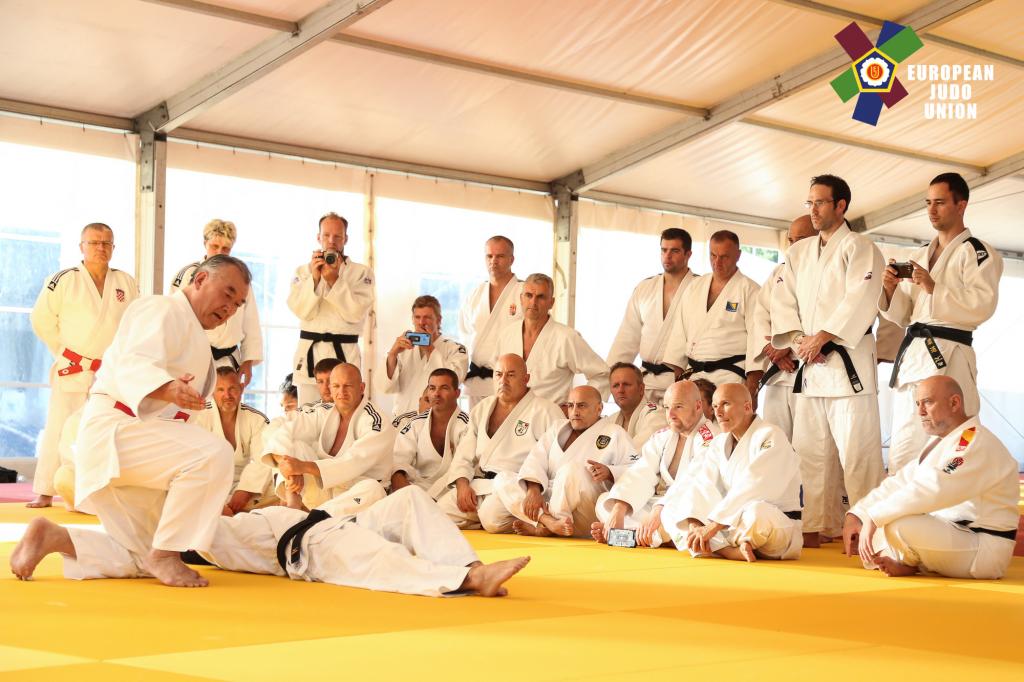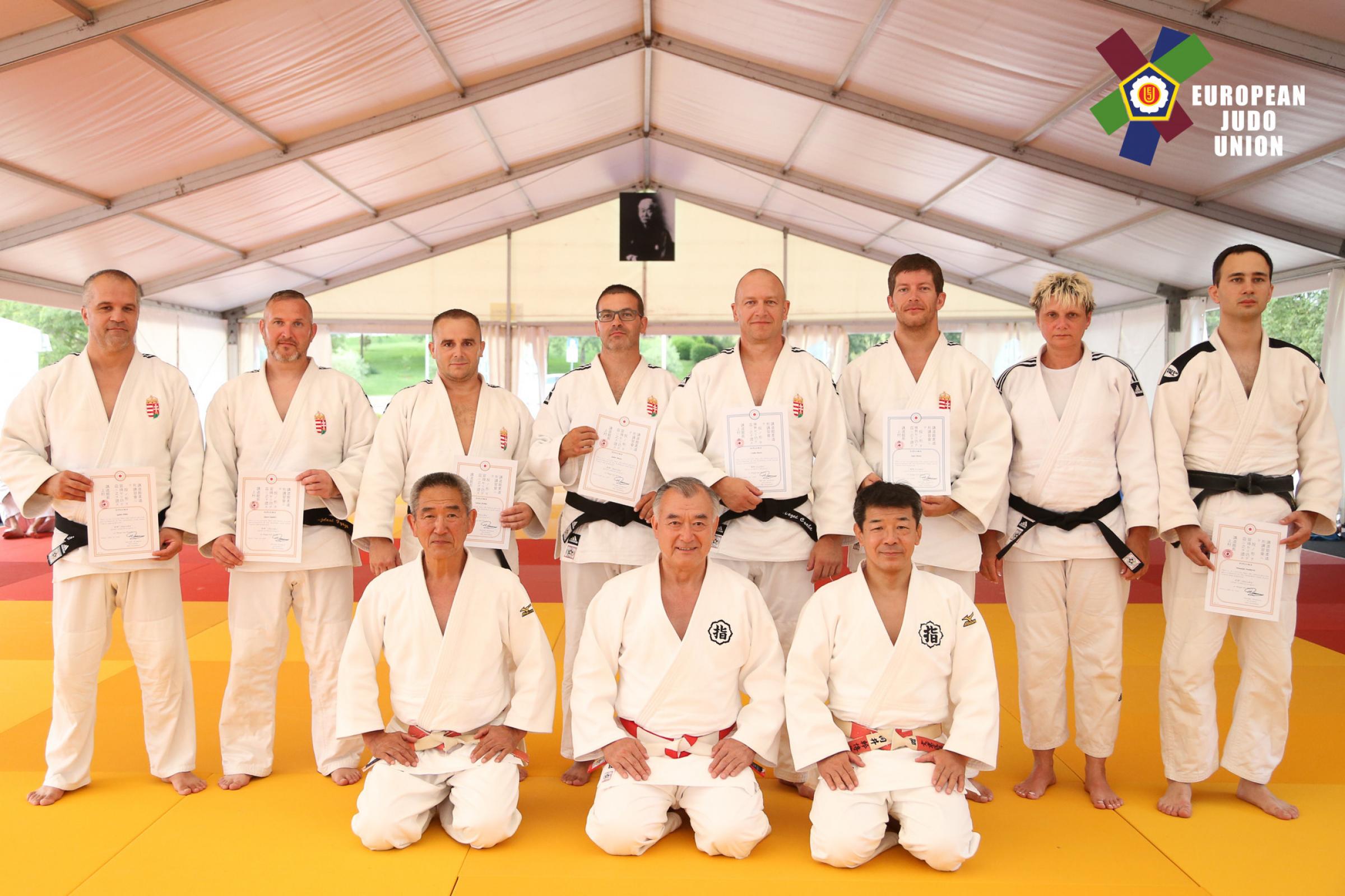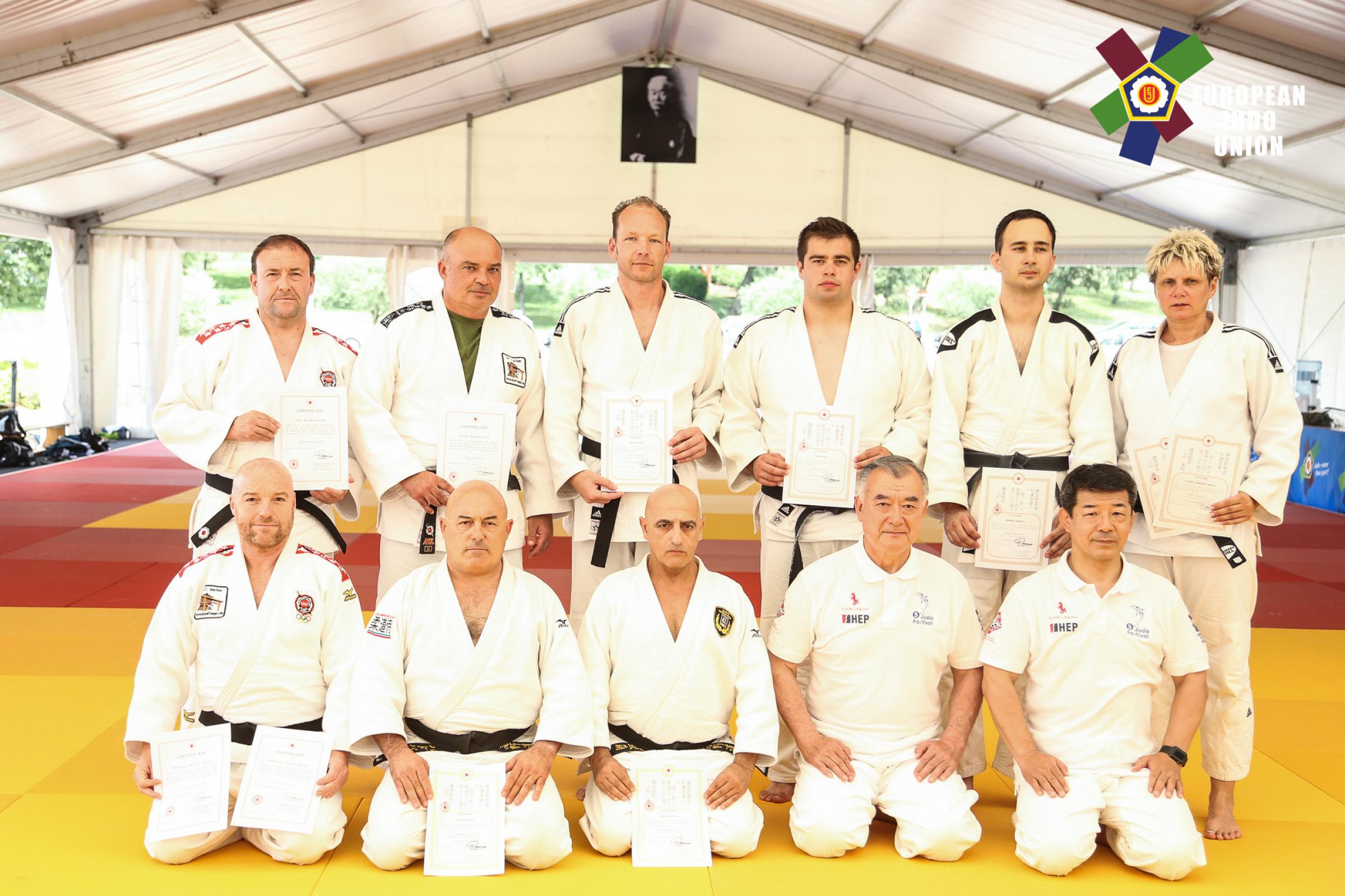There are two principal ways of practicing Judo: Kata and Randori. Kata, which literally means “form”, is practiced following a formal system of prearranged exercises, while Randori, meaning “free practice” is practiced freely. Through Kata practice, trainees learn the principles of techniques.
With this in mind, a once in a lifetime opportunity presented itself in Porec, Croatia, during past days at the annual Judo Festival. The unique occasion delivered a two-day course Kodokan Kata Seminar by two Kodokan Kata Experts, Mr. Mukai Mikihiro and Mr. Murata Naoki. Both of them are eminent coaches from the Kodokan.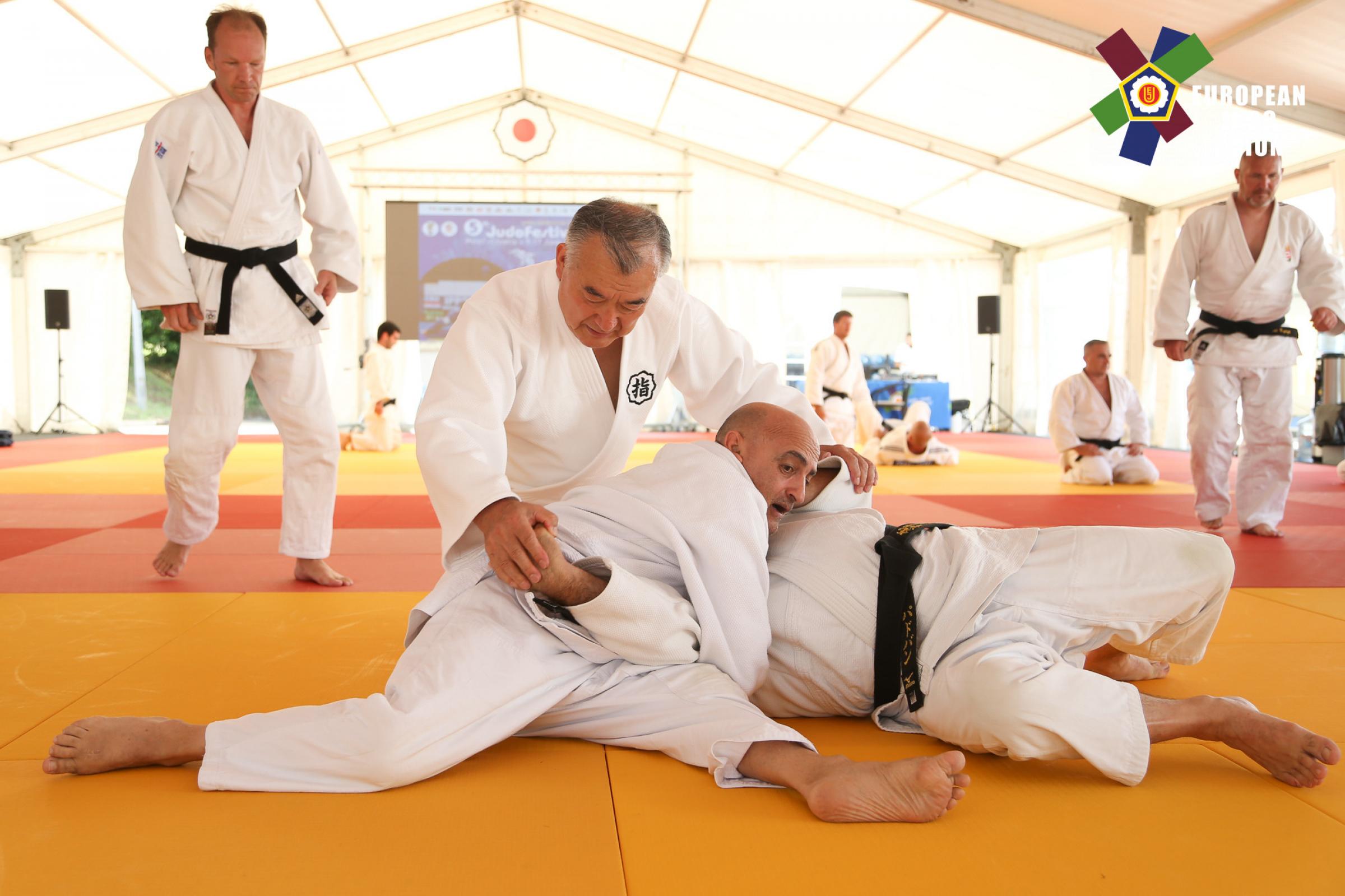
During this possibility, all participants practised Nage No Kata and Katame No Kata. Kodokan certificates were awarded to all participants. Moreover, a Kodokan Kata Examination took place for both Kata groups. All successful candidates received a certificate mentioning the level of attainment. There was a Mondo (Q&A) taking place as part of the seminar. Up on conclusion of the event, we took the opportunity to discuss with both experts.
Sensei Murata expressed his thoughts after the Nage No Kata exam;
“There are two points I would like to mention. First of all, I am sorry for the small numbers of the examiners today. Secondly, the level was medium. Having said that, they are very promising. If they continue to practice and improve, in a year time they will be able to be the top of the class. There are a few details to brush up on and if they have the chance to visit us at the Kodokan, I can definitely help them.”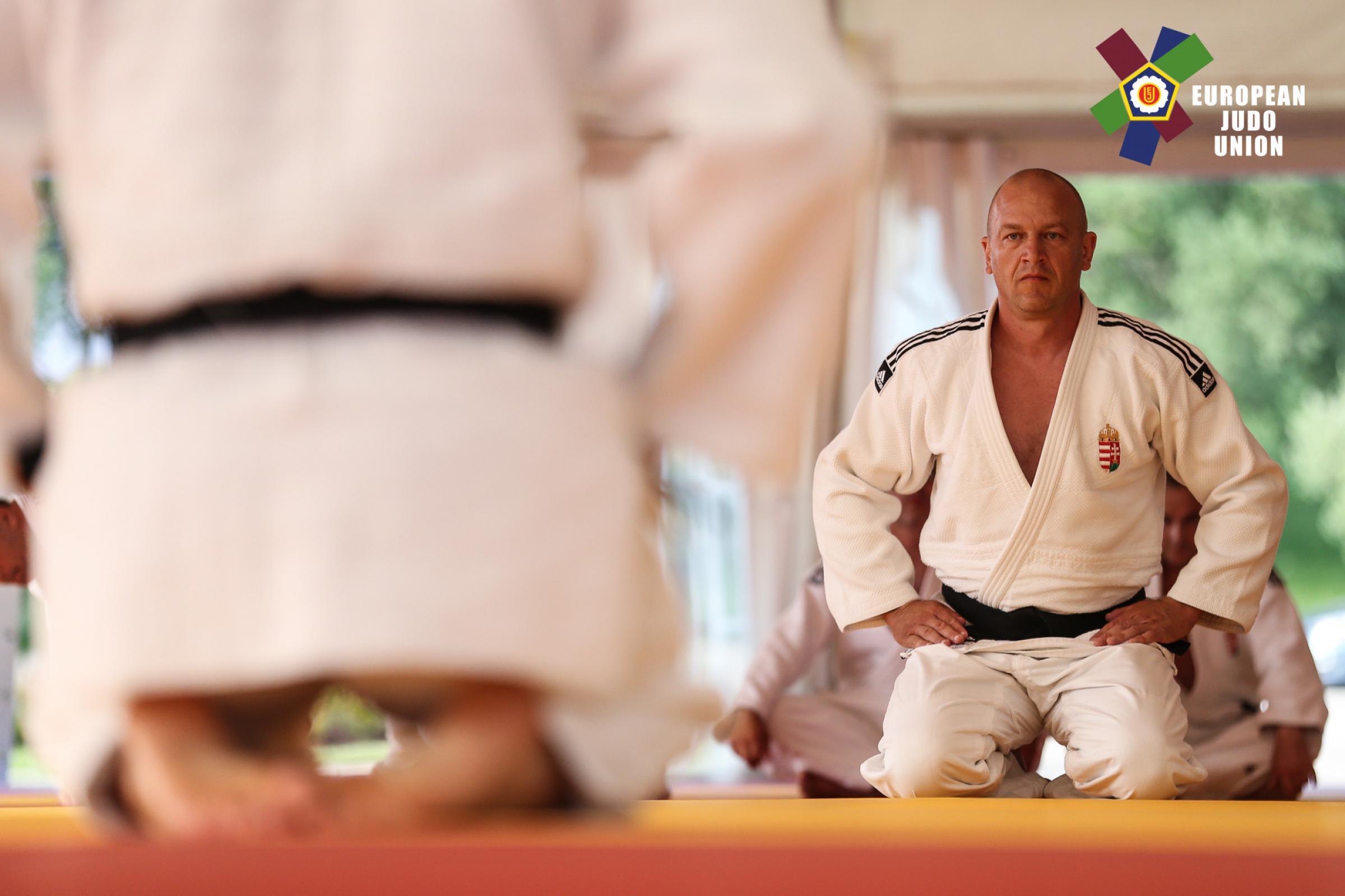
Mezei Csaba of Hungary who passed his exam with one of the highest grades of the Nage No Kata group, also spoken about his experience;
“The organisation was really good but most importantly we liked the fact that the sessions were not hectic or rushed. They allowed us to practice in details without exhausting the body. It was a really beneficial weekend and we did enjoy it. We are also grateful to have such an opportunity to spend a weekend with experts from Japan. We will return home with full satisfaction and a successfully completed exam.”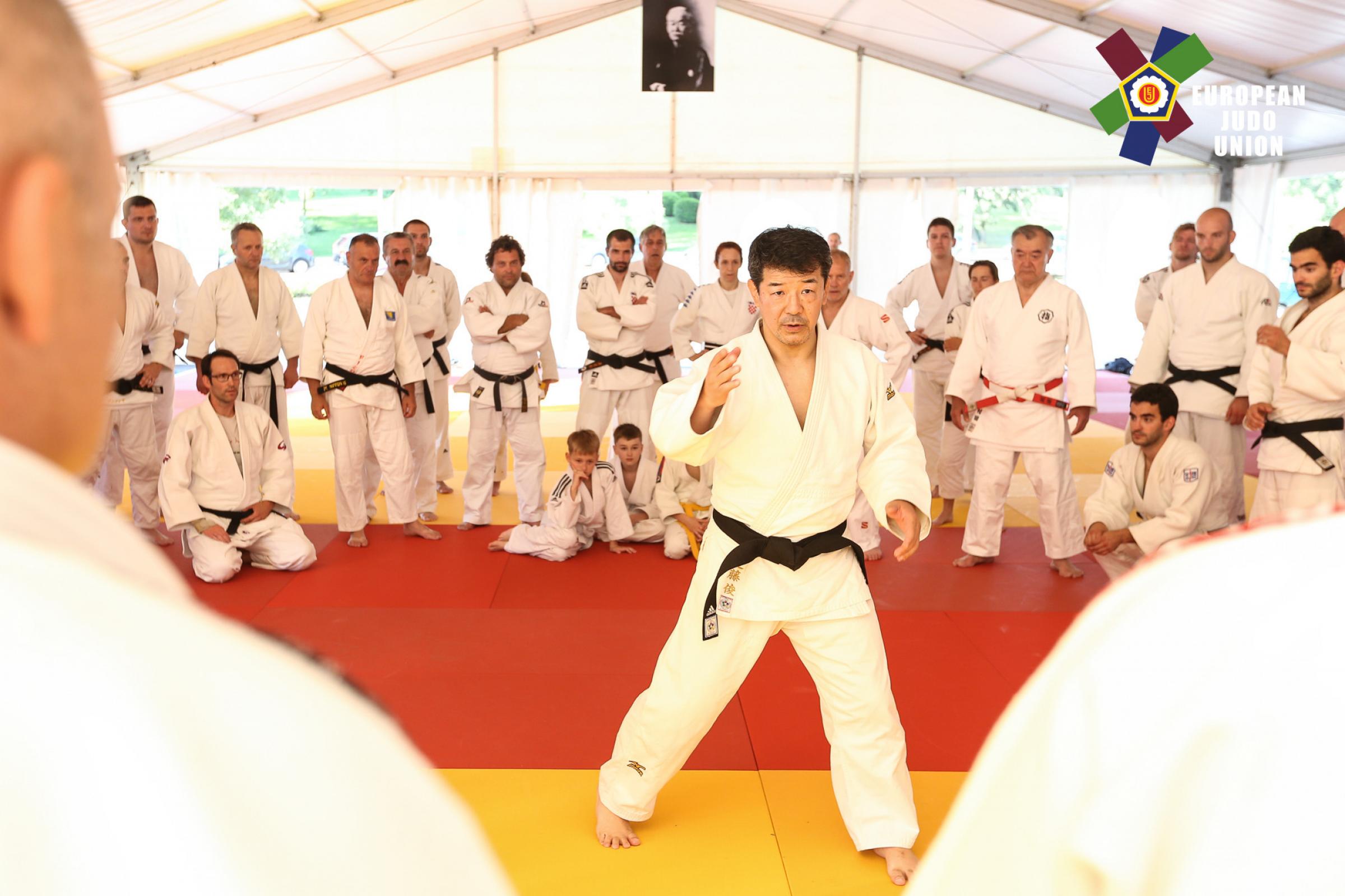
Today afternoon, it was time for all Katame No Kata pairs to show their knowledge to the examination board. Participants displayed great discipline and promising progress during their exams. Sensei Mukai concluded:
“We had a good number of participants during the seminar. As of the Katame No Kata, it is a little bit different and more difficult, as people who are not involved might find it boring. Katame No Kata is based on Newaza elements and it is interesting for us to be able to teach the right body position, because for instance Japanese people known to have short legs and so for the standard positioning of Katame No Kata will be different for a Japanese judoka than for a taller person in from Europe. We focused on finding a healthy balance in-between. From my point of view, there are small but important details to work on. In addition, I believe randori and practicing Kata are both important and beneficial for improvement. I saw some potentials over the past days and we always welcome everyone at the Kodokan to support their development.”



